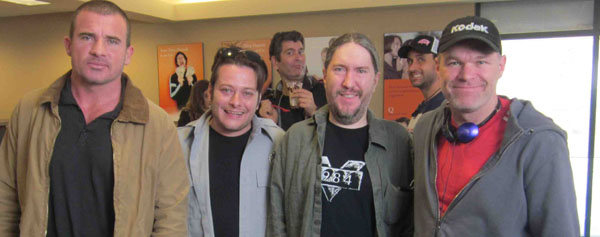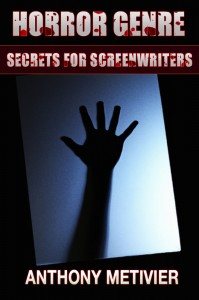Sun, 29 June 2014
Dear Memorizers, As you learned about back in the post, What If I Wanted To Memorize 3000 Words?, there’s really no memorization challenge that cannot be overcome. That said, there are a number of “painful truths” about memorizing that many people let get in the way of their progress. Let’s look at some of these. 1. You will make mistakes. It’s a basic fact that not only will we make mistakes when memorizing material such as foreign language vocabulary, names, faces and even our dreams, but we need to make mistakes in order to identify problem areas and grow. It’s an old cliche but a stubbornly correct one: we learn by failing. Or better put, it’s only failure if you refuse to learn from the mistakes. I think we’ve all probably had that experience of knowing that we’re doing something wrong, but going ahead and doing it anyway. The trick is to stop, correct and then proceed along the newly corrected basis. And in doing so, we make the practice artful. And, of course, I’m always talking about projects for memorizing stuff that’s important to you, like foreign language vocabulary, names and faces and poetry. But the same principles apply even if you’re into competition and feats of extreme memory. And yes, even memory champions make mistakes when their skills are on display. 2. You will be tempted to show off. Showing off is not such a bad thing, but the reason that it’s a painful truth when it comes to memory skills is that … you’re going to make mistakes. For many people, this is enough to turn them off of using memory skills or a dedicated Memory Palace network forever. This is a shame because failure, slip-ups and all kinds of foibles happen all the time. And you can learn from them, simply by grabbing hold of yourself, letting yourself relax, apologize if necessary and then start again at a convenient place. Just like Alica Crosby did in the Magnetic Memory Method Podcast episode, Tap the Mind of a 10-year Old Memory Palace Master. She made a tiny little error, caught herself and then corrected. Like it was nothing. Which it was. So if you are showing off (and I hope that you do), don’t let a tiny little mistake shame you out of continuing with memory development. And here’s a tip: demonstrate your skills to others in low stress environments. For example, do card drills in front of your dog or cat. Your pets don’t care if you get it wrong, but you will have the feeling that you’re demonstrating your memory skills in front of a sentient being. Then scale it up to your mom, your dad or a friend you know will be chill if you slip up. You can even tell them that you’re a bit nervous about making a mistake, which is a cool trick because when you don’t make any mistakes, they’ll probably forget that you said that or just think that you were being modest before unleashing the miracle. From there, you can increase the “social difficulty” as you please, always knowing that you can correct mistakes with a quick, “oh sorry,” like Alicia did on the Podcast and carry on. 3. You have to learn to relax. I include this amongst the painful truths of memory skills because, at least in my experience of helping many, many people build either their first or their one hundredth Memory Palace, usually the number one problem they have with memorizing information and recalling it is that they aren’t relaxed. There are a number of reasons why relaxation not only helps, but will completely take things to a new level for you. The first is that it helps over come the objections in the mind. I’m talking about that voice that says, “this is stupid,” or “this is crazy,” or “this will never work.” Many a person has this voice turned away from the gift of mnemonics. But if you memorize in a state of relaxation, you can dampen, lessen or outright eliminate this voice and work on improving your memory in peace. The second is that relaxation enhances creativity. I don’t know if this is because you enter a more dreamlike state, but there’s a lot of scientific research which demonstrates a link between, for instance, meditation and creativity and I’m sure that your personal experience will demonstrate that this is true for you as well. Meditation is a pretty simple affair. As Alan Watts put it: sit just to sit. The rest will take care of itself. A third reason why relaxation is such a powerful tool for a memorizer is that it conditions you to associate relaxation with memorization and recall. This means that when you’re tempted to show off, you can tap into that state of relaxation you used to memorize the stuff in the first place and use it in the moment in order to avoid getting flummoxed or embarrassed or otherwise feeling discouraged if you make a mistake. It’s really cool, but also a painful truth of memory skills and it saddens me that so many people skip this step and then claim that mnemonics don’t work for them. They do work and they will work for even the most resistant mind if you just give relaxation a serious try. 4. You have to have a success-oriented mindset. Far too many people enter a field they want to conquer expecting failure. This rarely helps … I don’t know why many of us go into things in a dark mood, but the relaxation tip I’ve just given is one way to move yourself in a more positive direction, in addition to simply deciding in your mind that you will succeed and nothing will stop you. Better yet, write it down. Literally. Get a notebook that you carry around with you and every day write down a list of your goals and the declaration that you will achieve them. Today was the first day of the Polyglot Gathering 2014 in Berlin and I showed someone who was skeptical that I actually do this my personal notebook that I carry with me everywhere. It has a date written in ink at the beginning and he could see that I certainly hadn’t filled out half the book since arriving at the conference that morning and gotten it all worn and dirty from carrying it in my pocket. I really do this stuff and it has helped me combat negative-thinking and depression for years. I don’t know exactly why it works, but Richard Wiseman talks about it in his book 59 Seconds and gives the science in those pages, so I highly recommend that you read it for more on this approach and even more little life hacks that are scientifically grounded that you can put to use in under a minute. 5. You will need to challenge your imagination. I was talking with another fellow today at the Polyglot Gathering today and he wanted to know why I recommend that people memorize the alphabet backwards. I told him that it’s a great way to see how you can use a Memory Palace, it’s great brain exercise, and it also helps bridge the gap between memorizing things that are familiar to you (the alphabet) and things that are foreign (like the alphabet backwards). You can use this skill to help when encountering foreign language words and seeing how to use mnemonics to store them in your mind and then later recall them at will. He still didn’t quite see why one should do exercises like this, especially for him because he knows the techniques and uses them every day. So I asked him what he thinks it would be like if he could use the same techniques he already knows 10 times better? He didn’t quite have an answer, but he thought it would be pretty cool. So I suggested that he give memorizing the alphabet backwards a try and explained that you could never really know what the strength of someone like Schwarzenegger feels like without putting in the time at the gym. In the same way, you can never know just how powerful your memory can be without doing some basic exercises. There is a huge difference between pumping 10 pounds and pumping 50 and only those who pump 50 get the outcome that only 50 can achieve. It’s that simple. So if you want your memory skills to grow, you’ve got to add challenges. Even if you just want to maintain them, you’ve got to at least use your memory techniques. I don’t really believe in the use “use it or lose” it idea in this case, but there’s definitely a dampening of power if you don’t memorize things for a long time, regardless of how well you understand the techniques. Not only that, but not having Memory Palaces prepared in advance can be a real drawback as well because then you’ve got to build them, or at least revisit them if you haven’t kept them maintained. Never fear, however. This is not hard work and it is in fact a lot of fun to wander Memory Palaces just to keep them in check for when you might want to use them. Speaking of which … let’s move on to … 6. You need to be obsessed with using memory skills. Actually using them, that is. I know all kinds of people and receive many messages each and every day from people who are deeply interested in mnemonics and love to read about Ars Memorativa. But so many people never actually build a Memory Palace, let alone use it. They have a problem that I call “mistaking activity with accomplishment.” It’s a huge problem that affects a lot of people in a lot of areas. But as awesome and even necessary as thinking about memory techniques is, it’s not the same thing as using them or analyzing your use of them and then getting back in there and using them again. But if you’re not obsessed with memory techniques, there’s hope in yet another pain of mnemonics … 7. You have to be willing to get started. This is another huge barrier that people face, including myself. I got started with memory techniques almost by accident, but they still wound up helping solve the desperate situation I was in as a grad student on the verge of flunking out during some very dark days of depression. Other people come to memory techniques in their own way, but don’t know exactly how to get started. I always like to say that mnemonics begins and ends with the Memory Palace. But this is not the only way, though it probably is the most Magnetic. All this said, in practical terms, one of the easiest and best ways to get started is to have a practical vision of what it is that you want to accomplish. Having a solid grasp of your intended outcome will guide and inform the process. It’s kind of like getting a degree in college or university. Yes, some people go to “audit” courses and take them for personal or professional reasons as one-offs, but most people go to university guided by some kind of structure, a well-defined outcome, a Bachelor of Arts in … whatever. The same thing goes for memory skills … minus the degree. In order to achieve something, you need to know what it is that you’re trying to achieve, so instead of saying, “I want to improve my memory,” try saying, “I want to improve my memory so that I can _________.” And then fill in that blank with a specific goal. From this basis, you’ll not only improve your memory overall because of applying memory skills in a dedicated manner, but you’ll achieve that goal alongside the learning and mastering of a memory strategy. Another way to think of this, returning to the university degree metaphor is that one never takes a degree just in a particular subject. You learn both the subject and how to learn about that subject which translates into how to learn about something in general. Thus, when I did my BA and my first MA in English Literature, I wasn’t just learning about English Literature, but I was learning about how to learn about English Literature at the same time, guided by the structure of a program and its carefully defined goals and outcomes. Make sense? Good. So let me conclude by defining exactly what it is that separates the Magnetic Memorizer from all the rest: * The Magnetic Memorizer overcomes all of the pains of memory skills in order to become free of forgetfulness at will. Others accept forgetfulness and let it rule the road of their life without taking focused and directed action. You can be Magnetic and you can have freedom from forgetfulness. * The Magnetic Memorizer practices self-leadership and firmly takes the task of memory development from the whims of nature into her or his own hands. As a Magnetic Memorizer, you’re not looking for something from nothing. You know the value of hard work and you refuse to be a victim of forgetfulness. Finally … * The Magnetic Memorizer places high value on the powers of the human mind and its natural abilities and approaches the Magnetic Memory Method as a method. The Magnetic Memorizer does not look for a “cookie-cutter,” one size fits all memory training program. You adapt and you form and you fashion based on the universal principles that you’ve learned, ideally grounded in the Memory Palace tradition for the reasons I have outlined many times before. And if you are a student (which is the best time to tackle these painful truths), I recommend checking out the free webinar on Memory Secrets of an A+ Student. It will help you overcome each of these of painful truths about memory skills. About the author: Anthony Metivier is the founder of the Magnetic Memory Method, a systematic, 21st Century approach to memorizing foreign language vocabulary, dreams, names, music, poetry and much more in ways that are easy, elegant, effective and fun. The post The 7 Painful Truths Of Succeeding With Memory Techniques appeared first on Magnetic Memory Method - How to Memorize With A Memory Palace.
Direct download: 7_Painful_Truths_Of_Succeeding_With_Memory_Techniques_Magnetic_Memory_Method_Podcast.mp3
Category:Practical Memory Techniques -- posted at: 3:49pm EDT |
Wed, 25 June 2014
In this episode of the podcast, I tell you about the memorization process behind the writing of Lucas Parks and the Download of Doom, my first novel to feature a Memory Palace. Apparently it’s mesmerizing! Tune in now and you’ll learn: * How to turn a movie theater into a Memory Palace. * How to use your dreams to create stories for novels and screenplays (it’s easy: just wake up and start writing down everything you remember and then use the plot points discussed in this podcast to structure a story around those narrative fragments). * Why Stephen King’s 2000 word a day rule is not nearly as important as he makes it seem (and how to be relaxed about it while still getting massive amounts of writing done). * The plot points I consider to be the most important when writing a story (like the conflict between conscious desire and unconscious need, dilemma, the visit to the underworld and the battle). * How to get a copy of Lucas Parks and the Download of Doom for free (no catch whatsoever). * My story as a young scholar reading Plato’s Republic while also working as a janitor in a movie theater (crazy times indeed). * … and much, much more! Frankly, if you’ve ever wanted to write a short story, screenplay or novel, there’s no better way to do it than to memorize the major plot points that have been with us since stories first became popular. I’ve been studying screenwriting gurus like John Truby and Robert McKee along with general ideas from narratology for ages in order to get insight into how stories work and have even served as a story consultant myself on several unproduced films and even Assault on Wall Street. Here I am on the set of that film with director Uwe Boll and the actors Dominic Purcell and Edward Furlong (yes, he played young John Connor in Terminator 2):
I got my story consulting gigs partly because of two kind of strange and mysterious books I’ve written on screenwriting: Disaster Genre Secrets for Screenwriters and Horror Genre Secrets for Screenwriters. These are based on my lectures on American Film Genres that I gave at the Universität des Saarlandes in Germany and talk about things that really no other screenwriting books discuss using weird words like “abjection.”
There was no time! Between preparing for the lectures and writing my dissertation while also running the short film club at the Uni, not to mention keeping up with my bass guitar studies … I was swamped! But I know Film Studies so well that I didn’t really need to memorize anything. All I had to do was draw up a few notes based on my research and preparation for the lectures and press the go button on my mind once I reached the podium. The notes guided my lectures so that I kept on track and the rest came from a different kind of memory: long term memory. There are different ways that material gets into long term memory, and a lot of my knowledge about film that allowed me to lecture from notes got into my long term memory through Memory Palace work, particularly using the combined index card/Memory Palace method. I talked about this procedure in detailed a previous podcast episode called “How to Memorize a Textbook.” Anyhow, I’m really happy to be able to talk about not only the various plot points I used to structure Lucas Parks and the Download of Doom, but also about how I memorized them for visiting again and again in order to deeply contemplate how to apply them to the stories I write. If you’re a writer and found this episode useful, please share it with your friends. As always, if you have any questions, please feel free to contact me at any time. Update: Film Studies is back in my life with this YouTube playlist all about the genres: Enjoy and let me know if you have a chance to check it out and find anything memorable!
The post How To Memorize Plot Points (For Writers Only) appeared first on Magnetic Memory Method - How to Memorize With A Memory Palace.
Direct download: How_to_Memorize_Plot_points_Magnetic_Memory_Method_Podcast.mp3
Category:Podcast -- posted at: 11:03am EDT |
Tue, 10 June 2014
* Why you need to train your working memory (and exactly what working memory is) so that you can make use of the best parts of your mind when working with languages. * How to link your ideas together so that they flow naturally together. * Why you should never drink the night before translating a speech by Obama. * The amazing reason why people fail at the study of new languages and how to avoid it. * How to develop competence in your own native tongue in order to achieve elegance in another language. * Why it’s not about what you “know” in your mother tongue, but what you can “do” with it that matters. * Why a deep knowledge of the culture and country of the language you’re studying helps you with learning the language. * The importance of understanding irony, puns and jokes and why this can be much more critical than having piles of vocabulary and grammar rules in your memory. * The absolutely best conditions for language learning. * The difference between internal and external motivation and how to use this understanding to excel with language learning. * Why rote learning is the number one mistake that language learners make (and what to do instead). * How to build a network that will let you see how the syntax of a language works so that you can build sentences with greater ease. * When to add quantity to your pool of foreign language vocabulary. * Why building a language core is like building a spider web to which new vocabulary sticks (even if you’re not yet a polyglot. * Some of the exact ways that Luca makes his mind learn languages much more quickly, the exact same techniques you can adopt for yourself. * Why you should never be prejudiced about a different culture or be seduced by generalizations such as “the French are snobbish.” * Why languages belong to no one and are only ever used, never owned. * Luca’s feelings about how English sounds to him from his perspective as a polyglot with Italian as his mother tongue. * Exactly what the “bucket effect” is and how to use its power in your language learning efforts. * The “combinatory logic” behind syntax and how to use this to understand the “gist” of what other people are saying as you build towards to fluency. * The relationship between vocabulary, circles and layers that move between objective, subject and literate levels of language learning. * Why building “language islands” is the best way to prepare yourself for exploring the depths of the “language oceans” that characterize all of the world’s many modes of speaking. * Why even a highly established English-speaker like Luca always watches English movies with the English subtitles on (and why you should too). * How to give your brain points-of-reference using a simple notebook. * The real reason why second-language speakers have accents. * How to understand the “jogger’s high” effect when it comes to language learning and how to avoid its opposite, “jogger’s depression.” * Why fear is one of the hugest problems that language learners face and how to overcome it. * … and much, much more. After listening to this interview, please be sure to go back and listen to the previous interview with Luca, titled “Luca Lampariello Talks About Language As A Net.” I’d also like to recommend that you check out Luca’s website, The Polyglot Dream. There you can find links to Luca’s Facebook, Twitter and YouTube offerings, all of which offer you amazing language learning ideas, inspiration and dedicated training. As always, feel free to get in touch if you have any questions, and … Keep Yourself Magnetic! For More Language Learning Resources … Check Out: 15 Reasons Why Learning A Language Is Good For Your Brain How Motivation Affects Your Memory When Learning A Language The post Luca Lampariello On Working Memory And The Oceans Of Language appeared first on Magnetic Memory Method - How to Memorize With A Memory Palace.
Direct download: Luca_Lampariello_On_Working_Memory_And_The_Oceans_Of_Language.mp3
Category:Podcast -- posted at: 4:55pm EDT |
Fri, 6 June 2014
In this episode of the Magnetic Memory Method Podcast, you’ll learn about using a Memory Palace even while suffering the crushing side effects of medication. Program Notes: Following from Magnetic Memory blog posts like The Dyslexic Memorizer Who Aced All His Exams and Memory Palaces vs. Alzheimer’s, another question about using mnemonics, Memory Palaces and other memory techniques to help overcome mental “problems.” In this case, it’s the negative effects of taking medication on memory has come in. Have you worked with anyone who was working against medications and/or an illness that randomly scatters chunks of memory? I’m on an anti-seizure med for some fairly extensive nerve damage, and since I’ve been on it, my already compromised memory is suddenly like trying to catch butterflies with a hula hoop. Now I’m wondering if I’m just a hopeless case. Thanks for any advice/thoughts! I don’t want to prattle on about myself, but I am one such person. In fact, my whole adventure into memory, something I’ve only recently started talking about, came from the devastating cognitive effects of lithium, which I was taking at the time to control Bipolar Disorder. Now I take something else that has less extreme effects, but back then, there seemed to be no alternative … Until I found mnemonics. In truth, I have only anecdotal evidence that mnemonics helps bring clarity into the mind, and I was also discovering a whole lot of other things at the same time, so the clarity that came into my mind through the use of Memory Palaces was assisted by things such as self-hypnosis, meditation and a better diet combined with fitness, improved sleep, writing down my dreams each and every morning, and spending some time writing down my goals and things that I’m grateful for on a daily basis. I learned a lot of these “hacks” from Richard Wiseman’s 59 Seconds, as well as from taking hypnotherapy certification which was part of my doctoral research into friendship (sounds like a stretch, but it turns out that we do hypnotize each other in a certain way as we become friends). But in terms of Memory Palaces strictly speaking, one of the biggest things that being able to command my memory brought was confidence. The stress and negativity that surrounded me as I worked to read some of the strangest and most obscure books of philosophy and cultural studies almost caused me to drop out of graduate school. And that’s not counting the fogginess and poor concentration that made it very difficult for me to read in the first place. And in truth, I still experience all of these things today. The difference is that Memory Palaces cut through all of it, provided that I use them and use them in the right way. For me, the right way is the Magnetic Memory Method and it applies to just about everything I – or you – could ever want to learn. Of course, as I teach it, the MMM is a “method” and not a “system,” which enables users to adapt the basic principles to their own learning style. Most people don’t need to change much, but the whole purpose of how I designed it for myself was to make what really is impossible for a person with my frenzied brain possible. These techniques are an almost fool proof means of getting things into my mind so that I can find them whenever I want. Think of it like this: The Magnetic Memory Method is like a wheelchair and a ramp. Without the ramp, the chair cannot be wheeled up to the next level. Without the wheelchair, the person cannot be moved anywhere. Put them together, however, and there’s no level that cannot be reached. The Magnetic Memory Method is a structured means by which both the chair and the ramp can be built in stages in order to bring the material in the chair to wherever in the mind you want it to go. But it’s not about wheelchairs and ramps … It’s about Memory Palaces. Mental constructs based on familiar places. That’s the key: familiar places. When you get more advanced, you can use less familiar places from deep in memory and even invented Memory Palaces or Memory Palaces based on video games, TV shows, etc. Thus, instead of trying to catch butterflies with a hula hoop, see if you can’t just catch one Memory Palace in your mind. Start with your own house. Using the Magnetic Memory Method principles of not trapping yourself and not crossing your own path, create a linear journey through the Memory Palace. Then, spend some time just traveling that journey. Make it really vivid in your imagination. If you can’t actually see it in your mind’s eye … Stop trying. Feel it instead. Feel it as a structure, a series of squares that are connected. You can also feel the journey in terms of time. How long would it take you to move from the bedroom to the kitchen? Approximately how many steps? When done with eyes closed, even a non-visual person can begin to attribute visual elements to this inner sense. Because the journey is known in real life and has now been recreated in the mind, you can move on to the next step. Assuming that you’ve got ten stations along your Memory Palace journey and assuming that you’ve got ten Spanish words lined up, then you’re ready to work on memorizing the first Spanish word by placing it at the first location. All of this is premised upon the absolute certainty that you know where to find that word later when you’re looking for it as part of your Magnetic Memory Method Recall Rehearsal procedures. Of course, there are ways that you can read about in the book that help you make sure that you’re picking the best possible words, and you can experiment with all of these. The most important thing is to get started. John Cage once said, “begin anywhere,” and that remains true. But if you’re struggling to find a place to start, start by embedding your home in your mind and try to always focus on what is possible. That is in fact the number one lesson I have ever learned. I used to focus so much on what was impossible that I hypnotized myself into taking zero action. But through all kinds of mysterious and interesting and strange circumstances, I learned to focus only on the possible, something I have to relearn all the time. Miraculously, when I use Memory Palaces in the right way, they never fail me. And barring some terrible brain trauma – and even then (if you’ve heard my Podcast interview with Michael Gusman then you’ll know why I’m making this exception), I don’t think Memory Palaces that are correctly built can ever fail. I sum, if I can make the following suggestions that I think will help you deal with the effects of your medication, based on the understanding that I’m not a doctor (at least not the medical kind, just a dude with a PhD), work on Memory Palaces as described by the Magnetic Memory Method, but also: * Meditation Do this writing by hand so that you train your brain to connect your gratitude and wishes with movements of the hand, with mechanical acts of doing that are not integrated with computers. The research Richard Wiseman presents in 59 Seconds shows you why this is important, but it also just makes sense when you think of the difference between blunt force writing via typing and the elegance of handwriting … Or the lack of it, which reminds me that if you ever get bored of writing down the same thing every day, try writing with your non-dominant hand instead. It took me only a short time to develop this skill and it has really happy effects. I guess it lights up different centers of the brain. I don’t know if writing with your non-dominant hand will do that for you, but if you’re going to pick up these habits, then you might as well give writing with your non-dominant hand a try too. It cannot hurt. I hope these thoughts help. Let me know if you have any questions or if there is anything further I can do for you. Anthony Metivier is the founder of the Magnetic Memory Method, a systematic, 21st Century approach to memorizing foreign language vocabulary, dreams, names, music, poetry and much more in ways that are easy, elegant, effective and fun. The post Can A Memory Palace Overcome Medicinal Side-Effects? appeared first on Magnetic Memory Method - How to Memorize With A Memory Palace.
Direct download: On_Medication_And_Memory_Skills_Magnetic_Memory_Method_Podcast.mp3
Category:Memory Method Tips -- posted at: 1:39pm EDT |
The Magnetic Memory Method Podcast

Categories
generalMemory Improvement Tools
Memory Method Tips
Brain Exercises for Memory Improvement
Memory Improvement Case Studies
Podcast
Guest Post
Memory Palace Tactics
Practical Memory Techniques
Uncategorized
Improve Memory Q&A
Archives
AprilMarch
February
January
December
November
October
September
August
July
June
May
April
March
February
January
December
November
October
September
August
July
June
May
April
March
February
January
December
November
October
September
August
July
June
May
April
March
February
January
December
November
October
September
August
July
June
May
April
March
February
January
December
November
October
September
August
June
May
April
March
February
January
December
November
October
September
August
July
June
May
April
March
February
January
December
November
October
September
August
July
June
May
April
March
February
January
December
November
October
September
August
July
June
May
April
March
February
January
December
November
October
September
August
July
June
May
April
March
February
January
December
November
October
September
August
July
June
May
April
March
February
January
December
November
September
| S | M | T | W | T | F | S |
|---|---|---|---|---|---|---|
| 1 | 2 | 3 | 4 | 5 | 6 | 7 |
| 8 | 9 | 10 | 11 | 12 | 13 | 14 |
| 15 | 16 | 17 | 18 | 19 | 20 | 21 |
| 22 | 23 | 24 | 25 | 26 | 27 | 28 |
| 29 | 30 | |||||
Syndication

 Subscribe to the Magnetic Memory Method Podcast on
Subscribe to the Magnetic Memory Method Podcast on 




 Since we’re on the topic of memory skills, you might find it interesting to know that I rarely gave my lectures from memory. Why?
Since we’re on the topic of memory skills, you might find it interesting to know that I rarely gave my lectures from memory. Why? In this episode of the Magnetic Memory Method Podcast, Luca Lampariello treats us once again to a focused array of language learning secrets that you can put to use today in your foreign language study efforts. Tune in now and you’ll learn:
In this episode of the Magnetic Memory Method Podcast, Luca Lampariello treats us once again to a focused array of language learning secrets that you can put to use today in your foreign language study efforts. Tune in now and you’ll learn: Dear Memorizers,
Dear Memorizers,
